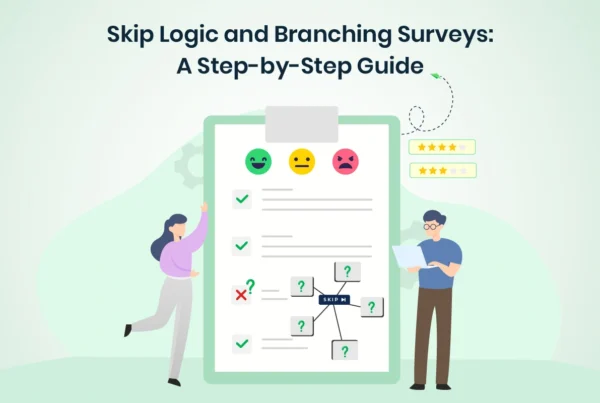Schools around the world try to improve student outcomes, but they sometimes overlook the enormous influence parents may have on their children’s academic path. Surveys are an excellent but underutilized approach to increasing parental involvement. This blog will discuss the benefits of adopting parent participation surveys and practical ideas for schools to promote parent engagement using these tools.
Parental Engagement: Why It Matters
Research has consistently shown that parental involvement in schools is associated with higher student accomplishment. When parents are involved, pupils are more likely to:
- Attend school regularly.
- Get higher grades and exam scores.
- Graduate and pursue higher education.
- Enroll in higher-level programs.
- Develop improved social skills.
Parental involvement extends beyond attending school meetings and assisting with homework. It entails parents forming a strong emotional bond with the school, being proud of their child’s school, and advocating for it in their communities.
Current State of Parental Engagement
Despite the obvious benefits, only 20% of U.S. parents completely participate in their child’s education. This is lower than the levels of participation seen in banking, insurance, and healthcare. To boost student engagement, schools need to create fresh approaches. Parental surveys become relevant at this point.
Using Parent Surveys to Raise Engagement
Parental participation surveys are a basic yet effective technique for boosting parent engagement. This method encourages parents to think critically about their children’s education and involvement by collecting their thoughts on various school issues and proposals for adjustments and improvements.
Here’s how surveys can be especially effective:
- Encourages Active Participation: Surveys prompt parents to reflect on their experiences and offer their opinions, making them feel more connected to the school community.
- Builds Trust: When schools act on parent feedback, they strengthen the parent-school relationship and increase trust, demonstrating to them that their opinions are appreciated.
- Supports Improvement: Survey responses can point out areas that require improvement, assisting schools in making significant adjustments that will benefit parents and children.
Making the Most of Parent Surveys
Creating the Survey
Planning and thought go into creating a parent survey that works. These pointers can help you create a parent survey that genuinely interests parents:
- Keep It Simple: Speak in a straightforward, concise manner. Avert jargon and complex inquiries.
- Concentrate on Important Areas: Inquire about certain areas, such as communication, assignments, extracurricular activities, and general contentment.
- Incorporate Free-For-All Questions: Permit parents to offer in-depth criticism and recommendations.
- Assure Anonymity: To promote candid feedback surveys, reassure parents that their answers will remain private.
Instances of Parent Survey Questions
Some sample questions for a parent involvement survey are as follows:
- To what extent do you find the communication between the school and parents satisfactory?
- Do you think the help your child gets with their homework is sufficient?
- Which kinds of extracurricular activities are you hoping to see provided?
- In what ways might the school enhance its parent-teacher conferences?
- Are you made feel respected and welcomed when you visit the school?
- Do you consider yourself knowledgeable about the school’s rules and regulations?
- How well do you think the school handles discipline issues with students?
- Do you face any obstacles when it comes to attending meetings or events at school? If so, what are they?
- To what extent do you find the school’s efforts to provide a secure and welcoming environment for every student satisfactory?
- Does the school sufficiently support your child’s emotional and social development?
Parent Surveys’ Advantages
1. Enhanced Communication and Trust
When schools solicit and act upon parent feedback surveys, they foster a climate of open dialogue and trust. Parents are more likely to support school projects when they feel appreciated.
2. Improved Educational Initiatives
Parent survey responses can help schools fine-tune and enhance their offerings. Parental feedback is paramount when it comes to curriculum modifications, extracurricular activity improvement, and communication channel enhancement.
3. Greater Involvement in the Community
Active parents are more inclined to help out, participate in school functions, and represent the school in the community at large. This greater involvement may result in an energetic, encouraging school climate.
4. Long-Term Advantages
Consistently using parent surveys can result in long-term benefits for schools. The information gathered over time can be used to spot patterns and regions needing ongoing development. Proactively addressing the issue can result in long-term improvements to school programs and parent involvement.
Practical Tips for Executing Parent Surveys
1. Start Small
If surveys are new to your school, begin with a brief, succinct survey on a particular subject. Prior to releasing additional thorough polls, this will assist you in determining parent interest and improving your strategy.
2. Parent Participation in the Process
Ask a few parents to contribute to the survey’s design, which guarantees that the survey covers the topics parents care about the most and that the questions are pertinent.
3. Observation
Schools should follow up with parents to go over the survey results and the school’s actions. Parent feedback demonstrates the school’s commitment to continuous improvement.
4. Make Use of Several Channels
To make sure the survey reaches as many parents as possible, distribute it via email, the school website, social media, and printed copies.
5. Recognize Your Involvement
Give parents credit for their time and advice. To promote involvement, consider providing modest incentives, like entry into a prize draw.
Getting the Survey Out There
Response rates can be strongly impacted by the distribution strategy used for surveys. Take a look at these techniques:
- Digital surveys: For simple distribution and analysis, use online tools like piHappiness.
- Physical Surveys: Give physical copies of the surveys to parents who might not have internet access.
- Parent-Teacher Conferences: Hand out surveys to get quick input during conferences or school functions.
Distributing the Outcomes
One of the most important things to do when utilizing surveys to boost parent participation is to share the results. Parents are more likely to remain involved when they perceive that their adjustments result from their feedback.
How to Distribute Survey Results Effectively:
- Enumerate the Main Results: Provide the information in a comprehensible and lucid manner.
- Emphasize the actions that were done: Parents should see how their input has been included into the improvements.
- Maintain Regular Communication: Provide updates on current modifications and upcoming plans in light of survey responses.
A Successful Survey Implementation Looks Something Like Below
Delhi Public School enhanced its communication approach by using feedback from parents. According to the poll, a lot of parents felt disconnected from their child’s development and school activities. In response, the school started publishing a biweekly newsletter and set up a parent portal where parents could get up-to-date information on their child’s progress in school and future activities. Parent participation and satisfaction have significantly increased, according to follow-up questionnaires.
Final Thoughts
Parent surveys can help schools strengthen relationships with parents, increase communication, and implement significant program enhancements. When parents feel heard and respected, they are more likely to be actively involved in their child’s education, eventually improving student outcomes. In addition to investing in their students’ futures, schools that value parent input and act upon it construct a more cohesive and engaged school community.
Implementing these techniques may transform parent involvement from a passive endeavor to an influential, dynamic, and active partnership. Using parent surveys as a pawn to close the gap between home and school, schools can ensure that every student has the support they require to succeed.








